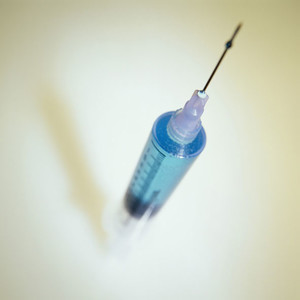The Indian patent system is once again under scrutiny as a final decision in the case of Novartis versus the Indian patent system is eagerly awaited by originator biologicals and biosimilars manufacturers alike. However, any decision on the case has been delayed until 10 July 2012.
Novartis versus the Indian patent system
Biosimilars/News
|
Posted 27/04/2012
 0
Post your comment
0
Post your comment

Switzerland-based Novartis challenged India’s patent laws back in 2006 when it failed to receive patent protection for its cancer medication Glivec (imatinib mesylate). According to India’s patent law, a patent cannot be granted for a modification of a known chemical composition and since imatinib mesylate was the salt form of imatinib, the original invention behind the cancer drug, it was not granted a patent.
The case was scheduled to be heard by India’s Supreme Court on 28 March 2012, however, final arguments have now been delayed until 10 July 2012.
An international medical humanitarian organisation, Médecins Sans Frontières (MSF), however, ‘is concerned that the case could have a severe impact on access to affordable medicines for people across the developing world.’ The agency has repeatedly urged Novartis to stop what it refers to as ‘a direct attack on the pharmacy of the developing world’, adding that ‘the implications of this case reach far beyond India and far beyond this particular cancer drug’.
Novartis, however, disputes MSF’s claims, stating that via their Glivec International Patient Assistance Program more than 95% of all Glivec patients in India receive their medicine free of charge. The company insists that their actions are merely ‘about gaining clarity on the application of patent law in India, which is important to the economic future of the country’. The pharma giant adds that ‘Novartis challenged the decision not to grant a patent to our life-saving medicine Glivec because we strongly believe safeguarding incentives for innovation through the granting of patents leads to better medicines for patients.’
Editor’s comment
Could tightening India’s patent laws affect access to medicines in the developing world?
Please feel free to share your thoughts via email or in the comments section below. What are your views on Indian patent rules? Do you think that they stifle innovation or are they a means to provide access to medicines for all?
Related articles
Bill introduced to ensure generics get 180-day exclusivity
Indian Government issues first compulsory licence
Source: Médecins Sans Frontières, Novartis
Research
Reaching ESG goals in pharmaceutical development
What is the future for the US biosimilar interchangeability designation
General
Samsung Bioepis wins Pyzchiva case; Regeneron patent rulings threaten foreign biosimilars
Chinese biosimilars go global: growth, partnerships, and challenges
Most viewed articles
The best selling biotechnology drugs of 2008: the next biosimilars targets
Global biosimilars guideline development – EGA’s perspective
Related content
FDA approves third interchangeable ranibizumab biosimilar Nufymco
FDA approves Poherdy (first interchangeable pertuzumab) and Armlupeg (pegfilgrastim) biosimilars
EMA recommends approval for insulin glargine biosimilar Ondibta and denosumab biosimilar Osqay
FDA approves denosumab biosimilars Osvyrti and Jubereq, Boncresa and Oziltus
FDA approves third interchangeable ranibizumab biosimilar Nufymco

Biosimilars/News Posted 09/02/2026
FDA approves Poherdy (first interchangeable pertuzumab) and Armlupeg (pegfilgrastim) biosimilars

Biosimilars/News Posted 27/01/2026
EMA recommends approval for insulin glargine biosimilar Ondibta and denosumab biosimilar Osqay

Biosimilars/News Posted 16/01/2026
FDA approves denosumab biosimilars Osvyrti and Jubereq, Boncresa and Oziltus

Biosimilars/News Posted 07/01/2026
The best selling biotechnology drugs of 2008: the next biosimilars targets






Post your comment